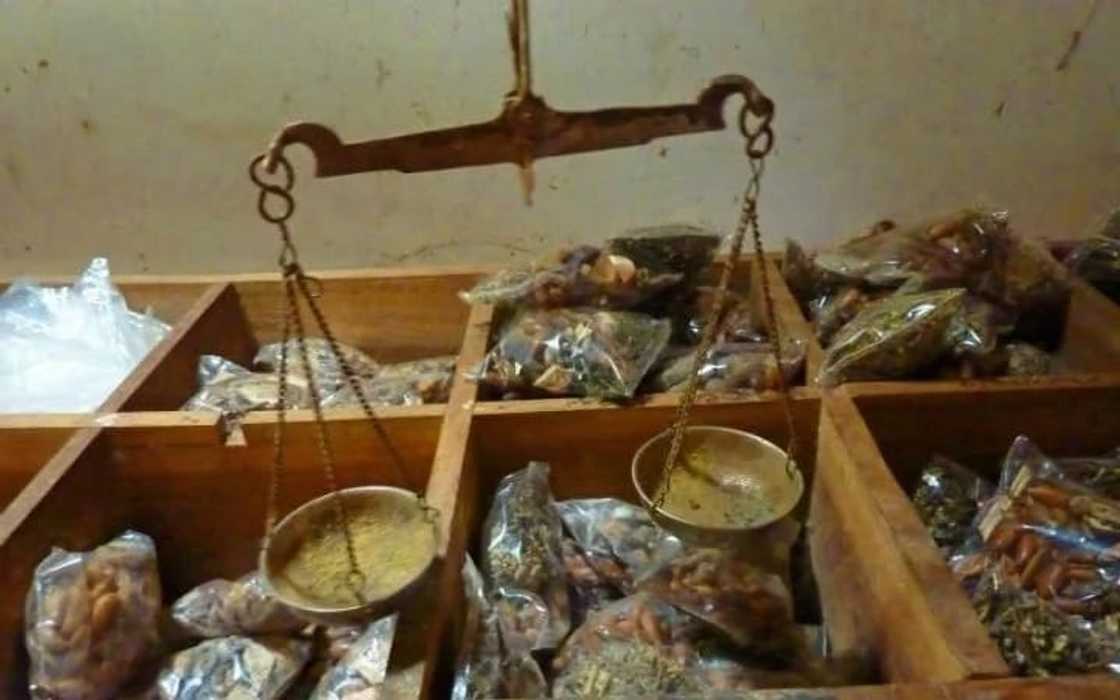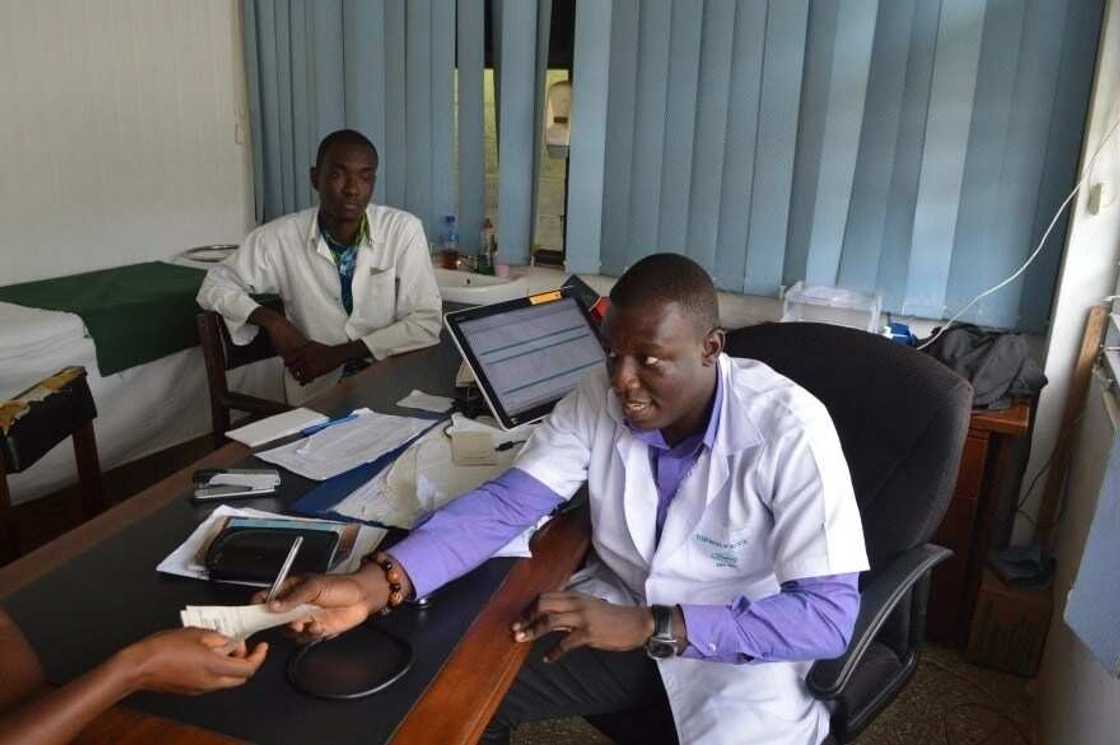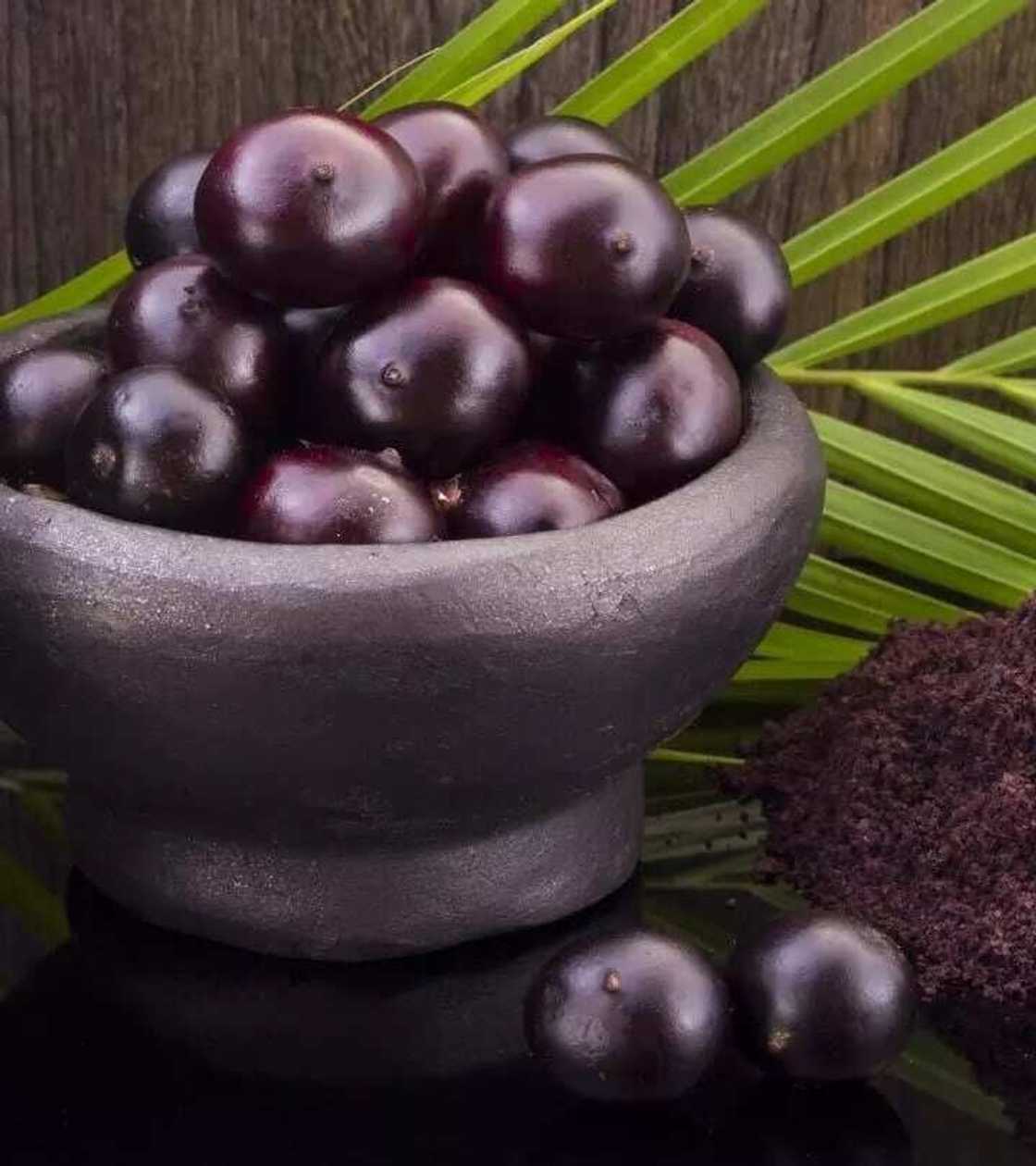Traditional herbal medicine in Ghana - history and current state
Ghana is a sub-Saharan country that is located in West Africa which has been relying on herbal medicine for curing and healing different diseases for several decades. This is because there are many herbal medicine producers in Ghana. Since herbal medicine is very famous among the Ghanaians from all walks of life, the government has nominated an executive of herbal medicine in Ghana to make sure that the traditional gen is evaluated and preserved in a proper way. Ghana is the home of one and only research center in Africa that conducts research work into herbal medicine and the cure of diseases using herbal drugs.

Herbal medicine in ghana
The majority of people in Ghana opt to use herbal medicine over prescribed drugs because they understand that natural cure has fewer side effects compared to the prescribed drugs. For instance, herbal medicine for premature ejaculation in Ghana has helped many young men last longer in bed. Additionally, the herbalists have the required skills that help them to practice medicine in different fields of work. Herbal medicine use in Ghana is popular because many Ghanaians believe that natural herbs are more effective in curing deadly diseases and it is less damaging to the body.
Since the majority of people in Ghana have realized that natural medicine works more effective than pharmaceutical medicine, they have turned back to the natural and traditional way of life. For this reason, people are progressively assuming the responsibility for their health and actively looking for healthier and less stressful way of life. The therapeutic effects of herbal remedies have been scientifically certified while others are backed up by robust traditional, historical and anecdotal evidence. This evidence shows that use of herbal medicine in Ghana for treating illness has fewer effects when compared to the use of pharmaceutical treatment.
Besides being effective, herbal medicine in Ghana is also cheap and readily accessible. Ghana is among the African nations that have been blessed with numerous bushes, and for this reason, natural herbs are easily available and this makes them less costly. As a result, some of the common diseases such as eczema and pimples are treated using herbal drugs. Additionally, curing famous diseases such as malaria entails high costs when the treatment process involves the use of prescribed drugs. For this reason, the majority of people will decide to have their diseases cured using herbal medicines.
In a bid to understand why Ghana herbal medicine is popular and why people have chosen the herbal medicine over-prescribed drugs, it has become evident that some basic benefits of using plant extracted medicine are safer than the synthetic options. Therefore, they offer profound remedial and cheaper disease treating alternatives.
History of traditional herbal medicine in Ghana

Herbal treatment is a primordial medicinal approach that offers Ghana’s populace with secure, efficient and inexpensive cure since time memorial. Even as we speak, the current generation in most of the African countries relies heavily on herbal medicine for various health cure requirements such as medicines for sexually transmitted infections. In Ghana, almost 75% of the population is recorded to use traditional cure at certain phases in their lifetime. According to recent findings, the majority of physicians proficient in Ghana have undertaken herbal medicine course as part of the training.
Internationally, there is a general acknowledgment that the treatment that was defined as primeval would be man’s saving element. Therefore, in a span of twenty years, the opinions of herbs being considered witchcraft has switched a major medicine component in treating diseases in the contemporary World.
Determinations to support the use of use of herbal medicine in Ghana began with the establishment of the Ghana Psychic and Traditional Healers Association in 1961 with the then president Dr. Kwame Nkrumah. The objective of the organization was to uphold, promote and protect the best in mental and natural treatment in Ghana. After a couple of years, with the help from the global organization known as United States Agency for International Development (USAID) Danfa Health Centre was established and this aimed at training traditional birth attendants.
In 1975, a center for scientific research into Plant Medicine (CSRPM) that changed to Centre for research into Plant Medicine was created at Mampong-Akuapem, in the Eastern region of Ghana. The role of the organization is to conduct and promote research for the development of herbal medicine. This association which is an agency of World Health Organization (WHO) has produced 35 perfectly researched herbal based products. After a while, Ministry of Health (MOH) collaborated with the Catholic Holy Family Hospital to create The Primary health training for indigenous healers project (PRHETIH) in 1979.

In 1992, the Traditional and Alternative Medicine Directorate was established with the ministry of health managed by a deputy director to strengthen and offer the required direction to the improvement and promotion of ancient medicine in Ghana with special emphasis on herbal treatment. This was then followed by the proclamation of Food and Drugs Laws 1992, PNDCL 305B and Traditional medicine Act 2000, to control herbal medications and the use of Traditional medicine in 1992.
The Technology Transfer Centre of the Centre for Scientific and Industrial Research agreed to the call made by the world health organization to include the scientifically proven, harmless and effective traditional medicine in the drug policies for all member nations in 1991. This was made successful by instigating the preparation of an Herbal Pharmacopoeia by a team of professionals to spearhead the procedure of dissemination and preoccupation of herbal medical technology in Ghana. The Ghana Herbal Pharmacopoeia (GHP) which was the first edition of this Pharmacopoeia was established in 1992.
In 2001, Kwame Nkrumah University of Science and Technology (KNUST) incorporated a science bachelor’s degree in Herbal Medicine at the Department of Pharmacy. The role of the program is to train health practitioners in the fundamental medicinal, pharmacological and social sciences as well. Additionally, it aims at creating healthcare professionals who are trained to offer prime care services with the help of world-class, secure, real and typical natural treatments.
Apart from KNUST, the training is also offered in two other institutions, which include the Tetteh Quarshie Memorial Hospital and the famous Centre for Research into Plant Medicine. All these institutions are located at Akuapem-Mampong, which is in the Eastern parts of Ghana. Once the students who undertake the herbal medicine course complete their countrywide service, they are required to proceed with their course at the two institutions cited above which are situated in Akuapem-Mampong.
All learners are required to go through a six-month training of study into herbal medication and additional six months of extreme medical learning at the leading medical training facility known as Tetteh Quarshie Hospital. Here, the healthcare professionals are taught how to ascertain circumstances that need emergencies, referrals, primary healthcare and many more. This is followed by professional exams prepared by the leading examination council in medical department known as Traditional Medicine Practice Council (TMPC). Once they pass the examinations, they are issued a professional license that allows them to work as clinicians who offer alternative medicine in herbal medicine shops in Ghana, treatment centers and infirmaries.

In 2003, the herbal and unconventional medicine executive was promoted to a full Directorate and was managed by an executive. Later, program of ethics and of typical practice for natural medicine physicians to impart competence into their work was introduced. Ghana National Drug Policy which is responsible for supporting exploration, progress of the balanced usage of traditional treatment as alternative medicine in Ghana was reviewed in 2004. The herbal medicine practice act was established in 2000 but started working when the Traditional Medicine Practice Council (TMPC) was established in 2010. The release of the second edition of Ghana Herbal Pharmacopoeia (GHP)was done in 2007.
In 2012, the ministry of health incorporated the clinical herbal medicine practice into the key healthcare delivery system in Ghana. This took place after piloting of herbal medicine shops in Ghana and clinics in specific government healthcare facilities countrywide started in 2011. This incorporation was influenced by the directors of Ghana Association of Medical Herbalists (GAMH) with a great backup from Business Sector Advocacy Challenge Fund (BUSAC) and SMILE Ghana.
As of 2012, the pilot operation had covered almost 18 government hospitals countrywide. Good news is that the governorship of the GAMH is advocating making sure that their services are covered by the National Health Insurance Scheme (NHIS). This is because the majorities of the patients that use the services are NHIS card holders and cannot afford the services of alternative medicine in Ghana in the facility.
READ ALSO: Ghana Health Service in need of doctors
The primary goal of the United Nations Sustainable Development Goal is to make sure people are living healthy lives and promote well-being for all individual. The organization has managed to achieve this by supporting herbal medicine schools in Ghana. The area of the target comprises backing up various research and development of treatment for both communicable and non-communicable disorders that affect third world counties. With the help of herbal medicine companies in Ghana, the organization is able to offer easy access to cheap essential medicine to attain the universal health coverage. This comprises easy accessibility of essential healthcare service and access to secure, effective, quality and cheap essential treatment.
For this reason, it is indisputable in the light of the above herbal medicine has a vital role to play in attaining the key aims and the ultimate objective. Before the introduction of allopathic treatment, different groups in Ghana used herbs as the only alternative to treat myriad of diseases such as herbal medicine for premature ejaculation in Ghana. Additionally, they depended on the traditional treatment together with conventional medicine to cure dangerous diseases. The World Health Organization (WHO) describes herbal linctus as a plant-derived substance or preparation with healing or other human health value which comprises either raw or processed constituents from one or more plants. In some traditions, material or animal origin might also be available in the herbal medicine.
The recent research indicates that almost 80% of the third world countries and between 70% and 75% of the people living in Ghana rely on traditional medicine council Ghana to get an herbal cure for your primary healthcare.
Current situation about herbal medicine in Ghana

It is evident that tremendous strides have been made both at the international and national levels in regards to the support if the safe and rational use of herbal medicine and the rise of herbal medicine companies in Ghana. In Ghana, major initiatives have been propagated by the successive government in a bid to change the herbal medicine industry via investing in research bodies, training many medical specialists, creating many regulatory organizations to help to monitor and establishing a policy implementing agency.
Those steps have played a vital role in protecting the herbal medicine industry from crude and harmful practices by swindlers that can lead to fatality. One of the institutions that are at the forefront to promote safe and proper utilization of herbal medicine in Ghana is the Centre for Plant Medicine Research (CPMR). This organization is authorized to create various guidelines for research into herbal medicine and development of research medicines. Additionally, it coordinates with professionals in traditional medicine in Ghana in their field of technology transfer and also best practices in the plant medicine, assess, efficacy and safety of herbal treatment products in Ghana.
The prerequisite to creating human capacity is not the only aim of achieving a secure and rational use of plant-based medicines but also the central to the creation of quality herbal medicaments. For this reason, the faculty of Pharmacy of the Kwame Nkrumah University of Science and Technology (KNUST) has taken the initiative to train medical herbalist who prescribes herbal medicine in some government hospitals and also private clinics.
The first group of practitioners was interviewed in 2009 and hired by the government in 2011. Additionally, pilot herbal units have been instituted since 2011 and by 2016, 19 units have been created in 10 different areas. All these activities could not have been complete without a policy implementing institution to establish a policy framework that could give focus and guide the industry. Additionally, the willingness and determination of the government to change the same played a vital role. Henceforth, the creation of the now Traditional and Alternative Medicine Directorate (TAMD) in 1991 under the Ministry of Health, to offer a general policy outline in which government’s short to long-term diplomacies on herbal medicament would be based.

Furthermore, the duty of the Food and Drugs Authority (FDA) in making sure that all medications comprising herbals meet suitable standards before licensing to guarantee the public safety with regards to listed products. The Traditional Medicine Practitioners Council (TMPC) was formed in 2000 with the mandate to control the practice of conventional medicine, register and license specialists among others.
The work of the council is to set standards for the practice of herbal medicine, issuance of a certificate of registration to eligible professionals and also clinics for practice. They also determine the code of integrity for plant medicine practice in unification with an association of traditional medicine physicians acknowledged by the Minister accountable for Health.
To this point, Ghana has strived and conducted all the required measures to ensure the safety of Ghanaians in the use of herbal medicaments. This is evident in view of different interferences, assurances and savings particularly in the field of research. Therefore, all Ghanaians can be guaranteed of high quality and effective herbal medicines for the treating diseases.
What are Herbal medicine benefits?
Here is a list of herbal medicine in Ghana and the piece also provides the names of herbal medicine in Ghana.
Echinacea – this plant produces traditional medicine that can be used to cure colds, flu, and other infections. The plant can be transformed into teas, sap, or extracts and consumed. Some findings have indicated that the Echinacea is an effective medicine for upper respiratory contagions. This is because the herbal medicine is known to boost the immune system to curb infection.

Chamomile – mostly found in teas, chamomile is an herbal medicine has helped to treat various disorders. The most common uses of the herb are to cure sleeplessness, anxiety, and gastrointestinal conditions.
Green tea – Green tea has helped in the treatment and prevention of various types of cancers like breast, stomach, and skin. Additionally, the tea is used as herbal medicine for weight loss in Ghana. Green tea is formed through steaming fresh leaves from the Camellia herbs and its consumed as a beverage. It can also be processed into extracts and capsules and is incorporated in some skin products. The caffeine found in the tea is known to contribute to its mental benefits, while substances known as catechins found in green tea will help your body lose weight.
Acai – this is exotic berry has received tremendous fame in the past few years due to its antioxidant properties. It has been marketed in the U.S. as the best herbal medicine for weight loss in Ghana.

St. John's wort – Though it sounds might sound like an unpleasant skin condition, St. John's wort is actually a yellow-flowered herbal plant that is also called goat weed. The first successful medicinal treatment of the herb was conducted in ancient Greece to cure mental illnesses and pain of the nerve. Additionally, it has been used for malaria treatment as a sedative, and as a skin problem remedy for curing bites, burns, and wounds. Currently, it is used to cure depression, anxiety, and sleep disorders. Some scientific findings have shown tremendous benefits from goat-weed for depression.
Aloe – it is evident that everyone has benefited from aloe vera when trying to soothe suntan. The gel that is mostly extracted from leaves of the aloe plant has been the best cure when treating skin conditions for many years. Some of other uses of this magic tree include treating deadly diseases such as epilepsy, diabetes, osteoarthritis, and asthma. Additionally, the plant is used in numerous skin produces and it is approved by FDA to be used as a natural food flavor. Aloe leaves can also be used to yield a substance called latex, which comprises robust laxative complexes. In most cases, Aloe is mixed in thousands of skin treatment products such as body lotions and gels.
Turmeric –turmeric is a plant medicine that is allied to ginger recognized for its rancorous flavor and its unique color which is golden. It is usually used to add some flavor to various foodstuffs. However, this product has played a vital role in in curing various diseases because can be used for curative purposes. This is because it has the properties that can facilitate digestion and boost liver function. Currently, the herb helps in curing dangerous ailments such as indigestion, gastrointestinal carbuncles, gallstones, and cancer.
Herbal medicine for gonorrhea in Ghana
Aloe Vera for Gonorrhea

Aloe Vera is a herbal medicine with numerous benefits. Nevertheless, the plant comes with one species known as Barbadensis Milla that can help in the cure for Gonorrhea. For the reason that this ailment is resilient to numerous types of medication, herbal medicines such as aloe vera are mostly recommended as complementary or substitute alternatives. The aloe vera plant has displayed outstanding realization in eradicating the contagious infections and depressing soreness. A mixture of honey and aloe vera will offer you the required defense and relieve from the infection of Gonorrhea. Additionally, as per numerous studies, honey has been recognized as one of the best remedy for many bacteria that are resistant to drugs.
Disclaimer
The information in this article is not intended or implied to be a substitute for professional medical advice, diagnosis or treatment. All content, including text, graphics, images and information, contained on or available through this page is for general information purposes only.
READ ALSO: Bitter kola side effects for health
Source: YEN.com.gh












